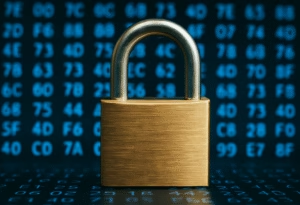
Encryption is the process of converting plain text into a coded or encrypted form that is unreadable by anyone except those who have the decryption key. The purpose of encryption is to protect sensitive information from unauthorized access, use, disclosure, disruption, modification, or destruction.
There are many different types of encryption, each with its own strengths and weaknesses. Some of the most common types include symmetric encryption, asymmetric encryption, and hash functions.
Symmetric encryption, or private key encryption, requires both the sender and receiver to use the same key for encrypting and decrypting messages. This key, often a string of characters or numbers, is vital for the security process, operating through a specific mathematical algorithm. A popular choice is the Advanced Encryption Standard (AES), renowned for its speed and efficiency in securing online transactions, file transfers, and communications. While efficient, the challenge with symmetric encryption lies in safely exchanging the key without compromising security.
Asymmetric encryption, also known as public key encryption, uses two different keys: one for encryption and another for decryption. One key, the public key, is used to encrypt the message, and the other key, the private key, is used to decrypt the message. The public key can be freely distributed, while the private key must be kept secret. The most widely used asymmetric encryption algorithm is the RSA (Rivest-Shamir-Adleman) algorithm, which is used to encrypt and decrypt data, as well as to generate digital signatures. The main advantage of asymmetric encryption is that the private key does not need to be exchanged between the sender and the receiver. However, it is generally slower and less efficient than symmetric encryption.
Hash functions are crucial one-way encryption tools used for verifying digital signatures and passwords. They convert an input or ‘message’ into a fixed-size string of characters known as a ‘hash value.’ Importantly, any minor alteration to the input results in a dramatically different hash value, enhancing security. These functions, especially popular ones like SHA-256 and SHA-512, are ideal for securely storing passwords since they prevent the original password from being retrieved.
Encryption is important because it helps to protect sensitive information from unauthorized access, use, disclosure, disruption, modification, or destruction. This is particularly important in today’s digital age, where personal information, financial data, and other sensitive information is stored and transmitted electronically. Encryption can also be used to protect the confidentiality of communications, such as emails and instant messages, as well as the integrity of data stored on a computer or network.
Encryption can be used to protect the privacy and security of personal information, such as credit card numbers, social security numbers, and other sensitive data. It can also be used to protect the confidentiality of business information, such as financial reports, legal documents, and other sensitive data. In addition, encryption can be used to protect the privacy of communications, such as emails, instant messages, and phone calls.
Encryption is also important for businesses and organizations of all sizes. It can help to protect against data breaches and cyber attacks, which can lead to the loss of sensitive information and financial losses.









